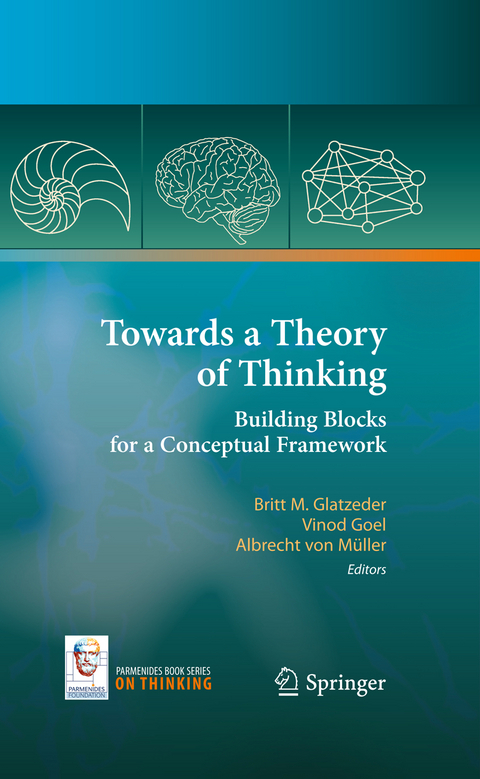
Towards a Theory of Thinking
Springer Berlin (Verlag)
9783642262517 (ISBN)
What is Thinking? - Trying to Define an Equally Fascinating and Elusive Phenomenon Human thinking is probably the most complex phenomenon that evolution has come up with until now. There exists a broad spectrum of definitions, from subs- ing almost all processes of cognition to limiting it to language-based, sometimes even only to formalizable reasoning processes. We work with a "medium sized" definition according to which thinking encompasses all operations by which cog- tive agents link mental content in order to gain new insights or perspectives. Mental content is, thus, a prerequisite for and the substrate on which thinking operations are executed. The largely unconscious acts of perceptual object stabilization, ca- gorization, emotional evaluation - and retrieving all the above from memory inscriptions - are the processes by which mental content is generated, and are, therefore, seen as prerequisites for thinking operations. In terms of a differentia specifica, the notion of "thinking" is seen as narrower than the notion of "cognition" and as wider than the notion of "reasoning". Thinking is, thus, seen as a subset of cognition processes; and reasoning processes are seen as a subset of thinking. Besides reasoning, the notion of thinking includes also nonexplicit, intuitive, and associative processes of linking mental content. According to this definition, thinking is not dependant on language, i. e. also many animals and certainly all mammals show early forms of thinking.
Perspectives on Thinking.- Problem Solving.- Heuristic Bias, Conflict, and Rationality in Decision-Making.- Analogical Processes in Human Thinking and Learning.- A Gestalt Perspective on the Psychology of Thinking.- Thought and Reality.- Components of Thinking.- Categorization and Object Shape.- Comparison.- Causal Thinking.- Conditionals: Their Meaning and Their use in Reasoning.- Thinking and Memory.- Perception and the Brain.- Onto- and Phylogenetic Considerations.- A Developmental Perspective on Modularity.- Theory of Mind.- The Development of Metacognitive Competences.- Understanding Apes to Understand Humans: The Case of Object-Object Relations.- Language, Emotion, Culture.- Socializing Cognition.- Thinking and Language.- Thinking and Emotion: Affective Modulation of Cognitive Processing Modes.- Cultural Differences in Thinking Styles.- Modeling and Neurobiological Aspects.- Natural Selection in the Brain.- Value and Self-Referential Control: Necessary Ingredients for the Autonomous Development of Flexible Intelligence.- Cortical Connectivity: The Infrastructure of Thoughts.- Models as Tools to Aid Thinking.
| Erscheint lt. Verlag | 4.5.2012 |
|---|---|
| Reihe/Serie | On Thinking |
| Zusatzinfo | XIV, 380 p. 58 illus., 16 illus. in color. |
| Verlagsort | Berlin |
| Sprache | englisch |
| Maße | 155 x 235 mm |
| Gewicht | 643 g |
| Themenwelt | Geisteswissenschaften ► Psychologie ► Allgemeine Psychologie |
| Naturwissenschaften ► Biologie ► Humanbiologie | |
| Naturwissenschaften ► Biologie ► Zoologie | |
| Sozialwissenschaften ► Ethnologie | |
| Schlagworte | cognition, higher • cognitive science • Denken • Emotion • Memory • Mind • neuroscience, cognitive • perception • Problem Solving • Thinking • Thought |
| ISBN-13 | 9783642262517 / 9783642262517 |
| Zustand | Neuware |
| Informationen gemäß Produktsicherheitsverordnung (GPSR) | |
| Haben Sie eine Frage zum Produkt? |
aus dem Bereich


